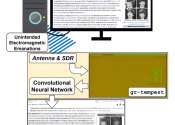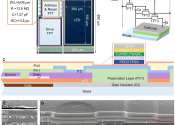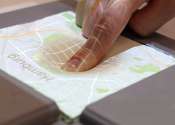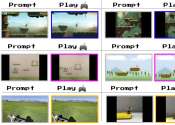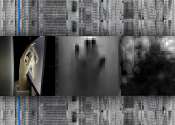New flexible sensor holds potential for foldable touch screens
Picture a tablet that you can fold into the size of a phone and put away in your pocket, or an artificial skin that can sense your body's movements and vital signs. A new, inexpensive sensor developed at the University of ...
Mar 15, 2017
0
510

